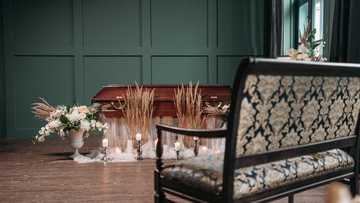The Record Store of My Childhood Became a Café, and The Key to Reconnecting With My Grandfather
The rain was an absolute, blinding sheet. I could barely make out the outline of the awning before I ducked under it, shaking the water from my sodden coat like a drowned dog. My breath hitched, a slight, involuntary spasm in my chest, and I leaned against the rough tiled wall.
PAY ATTENTION: stay informed and follow us on Google News!
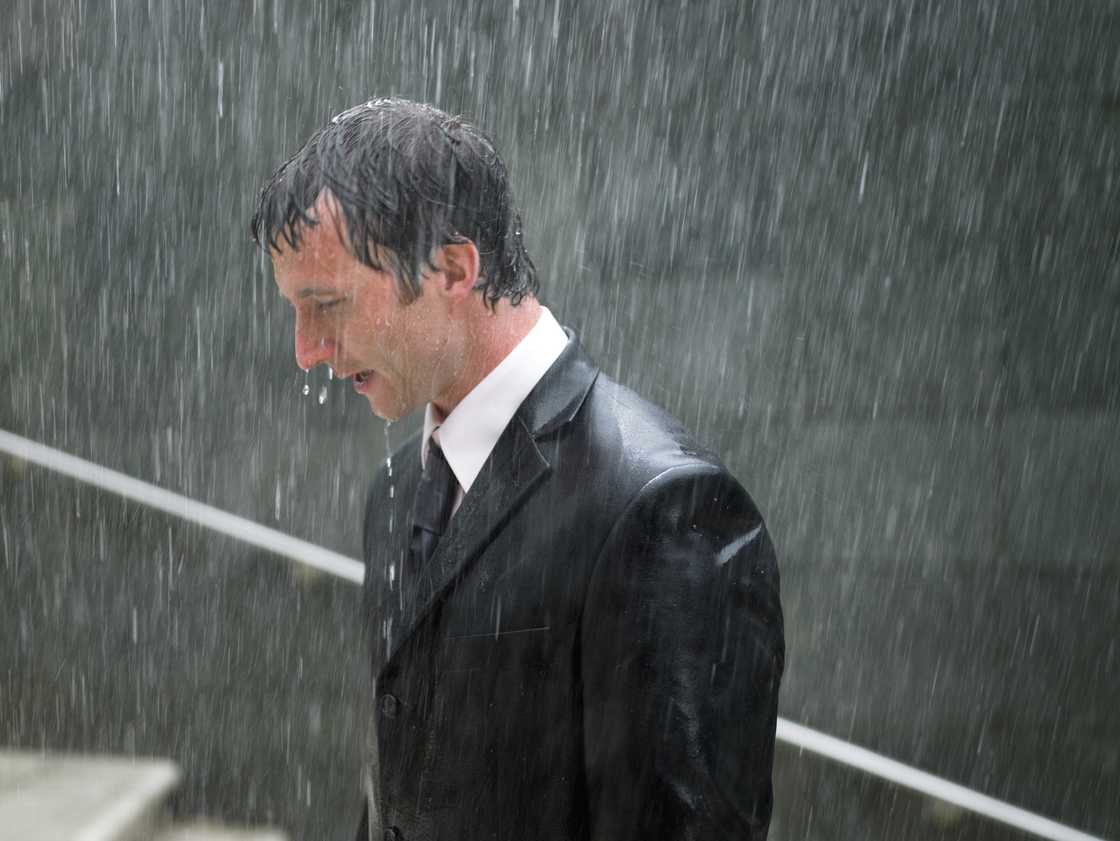
Source: Getty Images
It wasn't the rain that stole my breath. It was the scent. It was a rich, comforting, yet impossible scent: woodsmoke, old paper, and something sharp and metallic that only ancient vinyl records emit.
The aroma hit me with the force of a physical blow, a high-fidelity memory ripped right out of the air. It was a smell I hadn't consciously registered in over two decades, one I thought was locked away in the mausoleum of my childhood.
I had stumbled unthinkingly into the entrance of a building I didn't recognize, in a part of the city I was barely reacquainted with. Looking up, I saw a modern, elegantly painted sign: "Kape’t Kultura." A coffee shop.
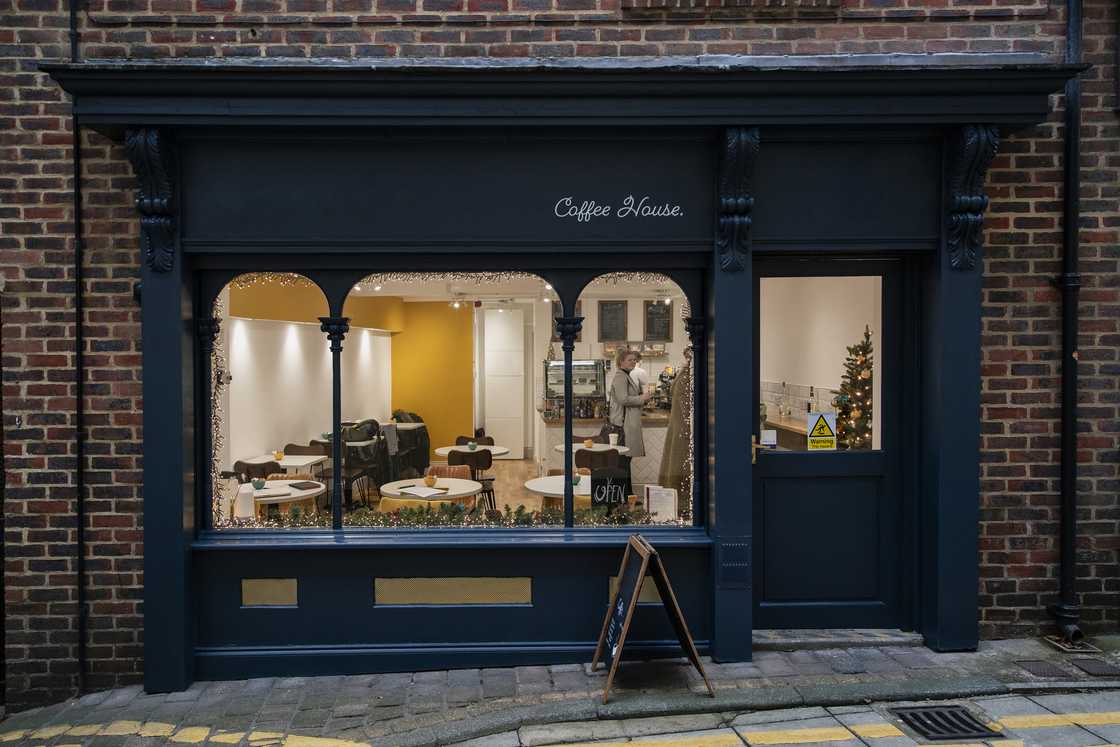
Source: Getty Images
PAY ATTENTION: Follow us on Instagram - get the most important news directly in your favourite app!
Yet, the memory the smell triggered was of "Tunog at Alaala," the local record store my grandfather and I used to frequent, a dusty, glorious place that had vanished from this very spot when I was sixteen.
The interior was warm, a beacon of soft, amber light. Every surface was clean, repurposed wood and brushed steel. Yet, the proportions, the high ceiling, the long, narrow layout, were achingly familiar.
Then I saw it. It was a column, positioned exactly where the cash register had been. It was painted a crisp, modern navy, but the wood beneath the paint—a deep, scarred cherry—was the original support beam that held the mezzanine.
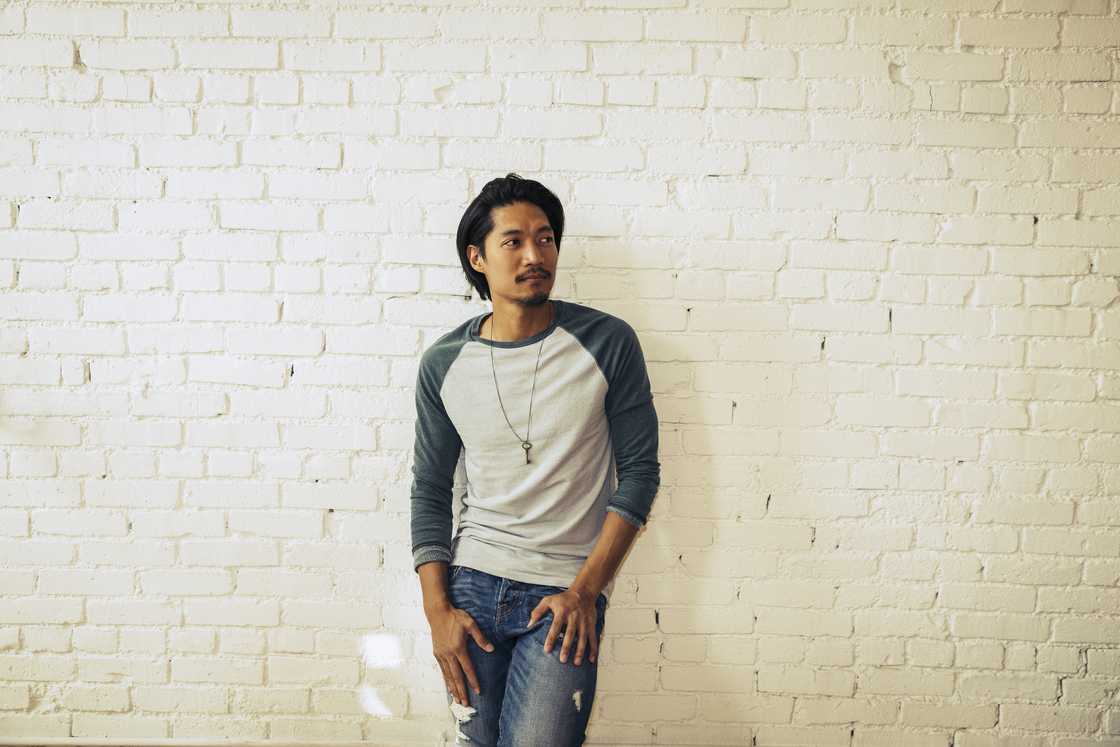
Source: Getty Images
And etched, barely visible through the thick coat of paint, was a single, tiny, hand-drawn star, the constellation Orion. My grandfather had etched that star on a Saturday afternoon when I was seven, using the tip of his house key.

Read also
He Was the Quietest Student I Ever Taught — Years Later, His Dedication Page Left Me Speechless
The store owner, a gruff but kind man named Mang Ramon, had only chuckled. "Don't worry, kid," he'd said, ruffling my hair, "it's an improvement."
I pushed off the wall, my hand shaking. This wasn't just a building in the same spot. This was the same building. The same soul, somehow preserved beneath a layer of sleek, commercial gloss.
My heart hammered against my ribs, an erratic drum solo accompanying the steady shhh of the rain. The memories weren't just coming back; they were pulling me under. I had walked into a ghost.

Source: Getty Images
I hadn't come back to my hometown, Quezon City, for a joyous reunion. I was here to lay low. After a relentless seven years in the financial district of Makati, I'd finally hit the wall, hard. Not just a bump, but a complete, catastrophic crash into total professional burnout.
The kind that leaves you staring at a blank wall for hours, wondering if you even remember how to tie your shoes. The doctor referred to "severe occupational fatigue." My therapist called it "time for a full-system reboot."
I'd quit my job without a replacement plan, broke the lease on my condominium unit, and retreated to the only place that felt remotely safe: the small, quiet apartment I still owned here, a relic from my college days.
I needed a silence so profound it could heal the noise in my head. Quezon City felt both the same and utterly alien. The streets were the same grid, the plazas were still green, but the people moved at a slower, gentler pace.
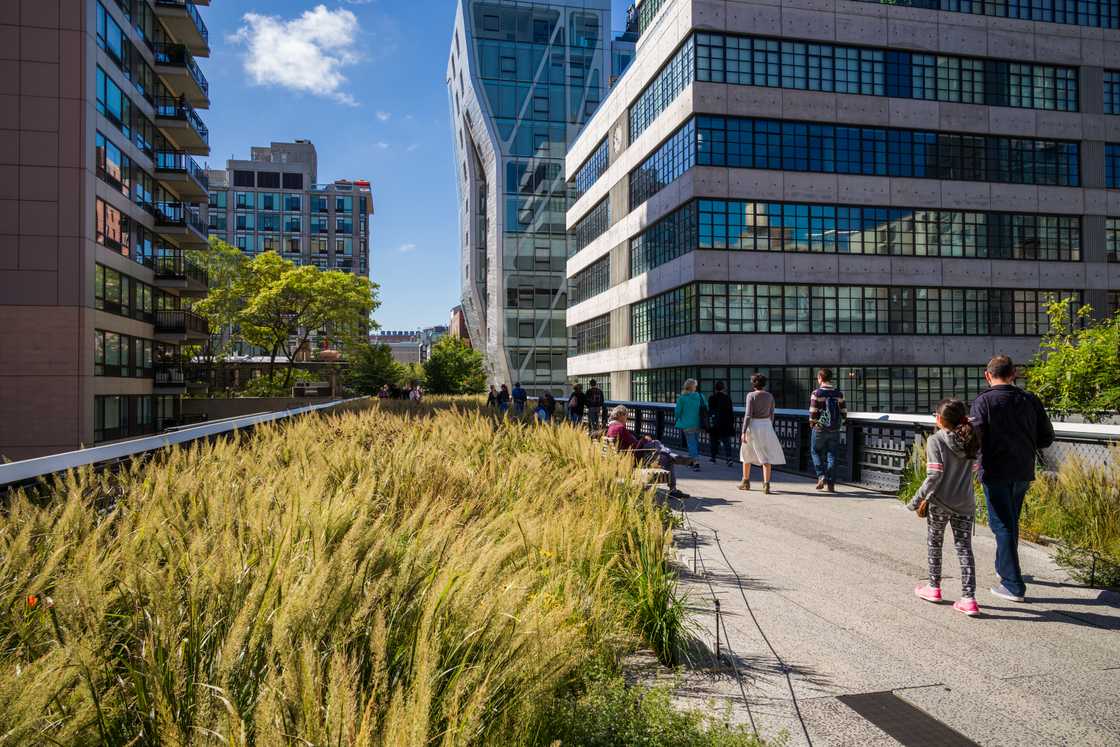
Source: Getty Images
It was a stark contrast to the relentless forward march of my recent life, which felt like perpetually running up a staircase that was actually descending.
My best memories here were tethered to my grandfather, who had passed away shortly after I left for college. He was the anchor of my childhood, a man who saw the world in shades of sepia and knew every song that mattered.
Our ritual was sacred: every Saturday afternoon, we would walk two miles to Tunog at Alaala. It wasn't just a record shop; it was a sensory sanctuary. He would let me pick one 45 single, usually something with an outlandish cover, while he browsed the esoteric jazz and classical LPs.
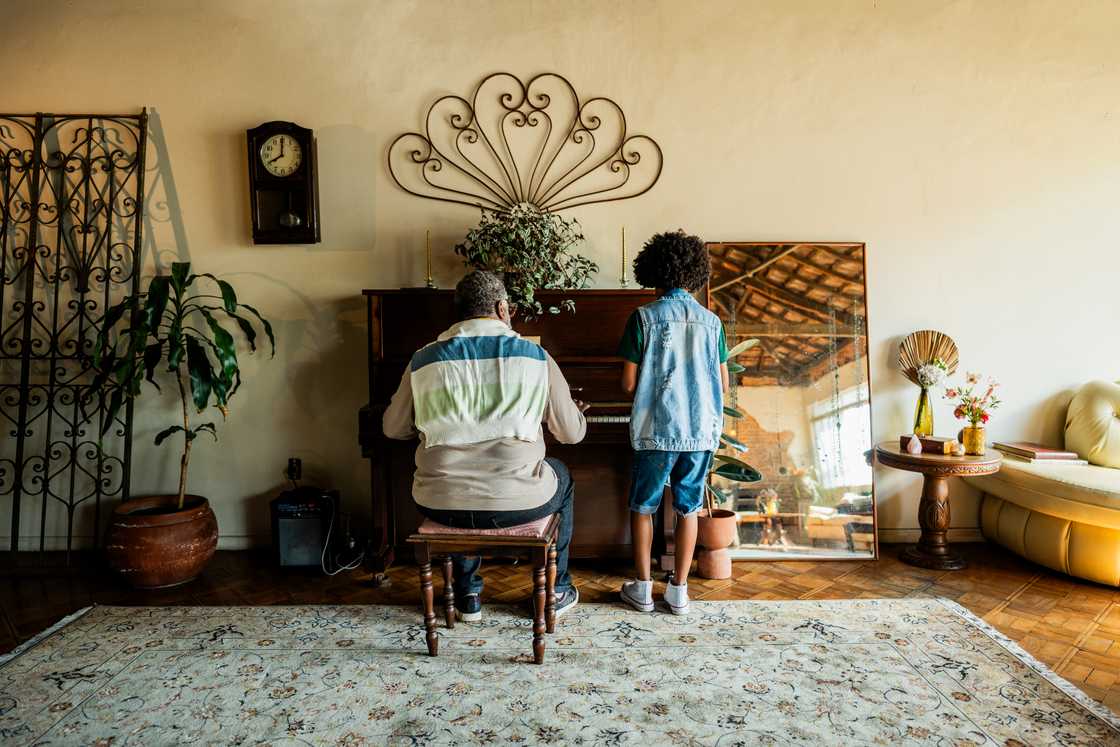
Source: Getty Images
The shop was always dimly lit, with a faint, dusty scent and the musty odour of the old city building. Grandpa never cared about money or trends. He cared about the neighborhood, the needle dropping into the groove, the satisfying ritual of handling something so delicate yet so durable.
The shop closed abruptly when I was sixteen, the owner retiring after a health scare. It was a genuine loss to the neighborhood, but for me, it felt like the end of an era, the final curtain call on my childhood.
When I moved away, the constant pressure of my career eventually suffocated all the simple joys I learned from him. My life became measured in deadlines, profits, and quarterly reports. I didn't own a single record player.
My music came from a compressed digital file streamed through expensive headphones. Now, years later, wandering these streets again, the weight of the absence of him, of the shop, of the joyful, uncomplicated boy I used to be, was crushing.

Source: Getty Images
I felt like an artifact of a life long gone, incapable of rejoining the flow of the present. The rain that started to fall felt like the world weeping for the person I'd become.
I took a deep, shuddering breath, the scent of the past still thick in the air. The need to escape the downpour and the overwhelming emotion was the only thing that finally drove me through the door of Kape’t Kultura.
The interior was bustling but quiet, filled with the low hum of conversation and the hiss of the espresso machine. The front half was indisputably a modern coffee shop, featuring a sleek counter, geometric tiling, and a small, carefully curated selection of artisanal goods.
But as I walked toward the back, seeking an empty table, the architectural echoes grew stronger, each one an escalating beat of recognition.

Source: Getty Images
I almost tripped. Not because the floor was uneven, but because I remembered where the unevenness had been. The polished concrete now seamlessly covered the spot where a large, splintered floorboard had defined the border between the Rock and Pop sections.
More startling was the back corner. An elegant, space-saving spiral staircase now led to the storage loft. But before, an ancient, rickety wooden stairwell stood there, and I distinctly recalled the smell of its old, dusty carpet.
My grandfather would let me climb up, pretending I was scaling a mountain. The new stairs were beautiful, but the memory was sharper. I felt a sudden, profound vertigo, a slipstream between then and now.
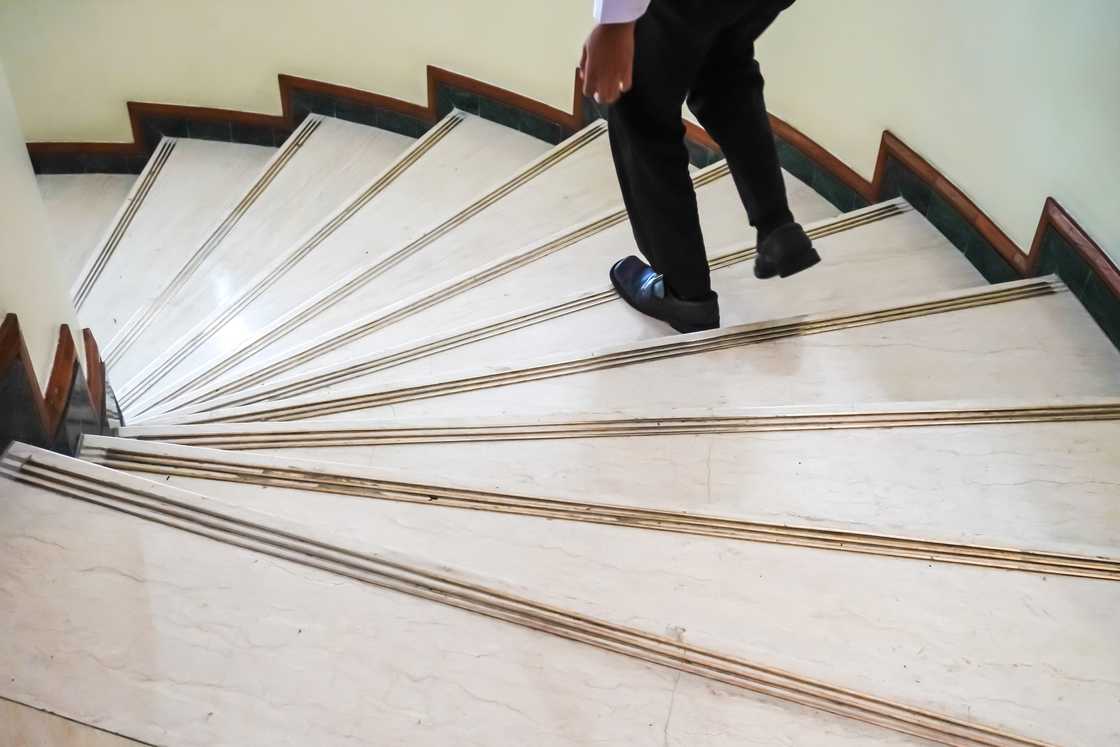
Source: Getty Images
I found a small booth tucked against the back wall, a perfect replica of the small, semi-private nook where Mang Ramon used to drink his coffee and read the newspaper. I slid in. A glance up revealed a large, beautifully framed window that looked out onto the alley.
But that window had been added. The original space was solid brick, where a faded poster for Eraserheads had hung for years. The addition of light was welcome, yet it felt like a violation of the shop's sacred gloom.
The juxtaposition was jarring.
A woman approached, her apron clean, her smile genuine. She was the owner, I assumed, by the air of proprietorship about her. "Welcome in! You look like you need that coffee, or maybe just a hug," she said warmly, setting a small menu on the table. "That rain came out of nowhere, didn't it?"

Read also
My Grandma Fell and Lay Alone for Two Days — Until Her Neighbours Found Her and Saved Her Life

Source: Getty Images
"It did," I managed, my voice a little rough. "Thanks. I'll take a black coffee, please. And, if you don't mind me asking, how long have you been here?"
"About five years now," she replied, tucking a stray curl behind her ear. "We gutted the place, obviously. It was a shell. But we kept the bones. It was a record shop before, you know. An old one."
"I do know," I said, a faint smile touching my lips. "I used to come here with my grandfather, years ago. This was Tunog at Alaala."
Her eyes widened, a flicker of genuine surprise and empathy crossing her face. "Oh, wow. What a gift! Not many people who come in remember that far back. I'm Althea, by the way. I hope we've done the old place justice."

Source: Getty Images
As she walked toward the counter, I finally registered the music playing in the background. It wasn't the usual generic coffee shop playlist. It was music with a texture, a richness, a distinct, subtle pop that digital files lack.
It was a full-bodied OPM number, I realized, specifically a track by Ely Buendia, and it was playing from a vinyl record. The sound filled the space, warm and deep.
I closed my eyes, and for a split second, I wasn't a burnt-out consultant; I was ten years old, sitting by the jazz section, waiting for my grandfather to pick his latest treasure.
I opened my eyes to see Althea watching me, a sympathetic and knowing look on her face. She returned with my coffee, sliding the mug across the table. "You have a look on your face," she said softly, sitting opposite me for a moment, unhurried despite the bustle. "A good look. It's the music, isn't it?"

Source: Getty Images
I nodded, gripping the warm mug. "It's Ely Buendia. And, it sounds like vinyl. Is that even possible in a shop this busy?"
She gave a quiet, conspiratorial chuckle. "It's possible. And no, that's not the biggest surprise. You know, when we took over this place, the previous owner was ready to haul everything to the dump. It felt wrong to throw away forty years of history. So, we saved a few things. Kept the soul, if you will."
She gestured vaguely toward the back wall. "Look past the coats hanging on the rack there. That weirdly textured poster? It was the only thing on that entire wall that didn't crumble when we started scraping off the old wallpaper. We tried to cover it, but the paint wouldn't stick, so we just embraced it."
I leaned forward, squinting. It was a dull, textured paper, not much to look at. But in the dim light, the colors swam into focus.
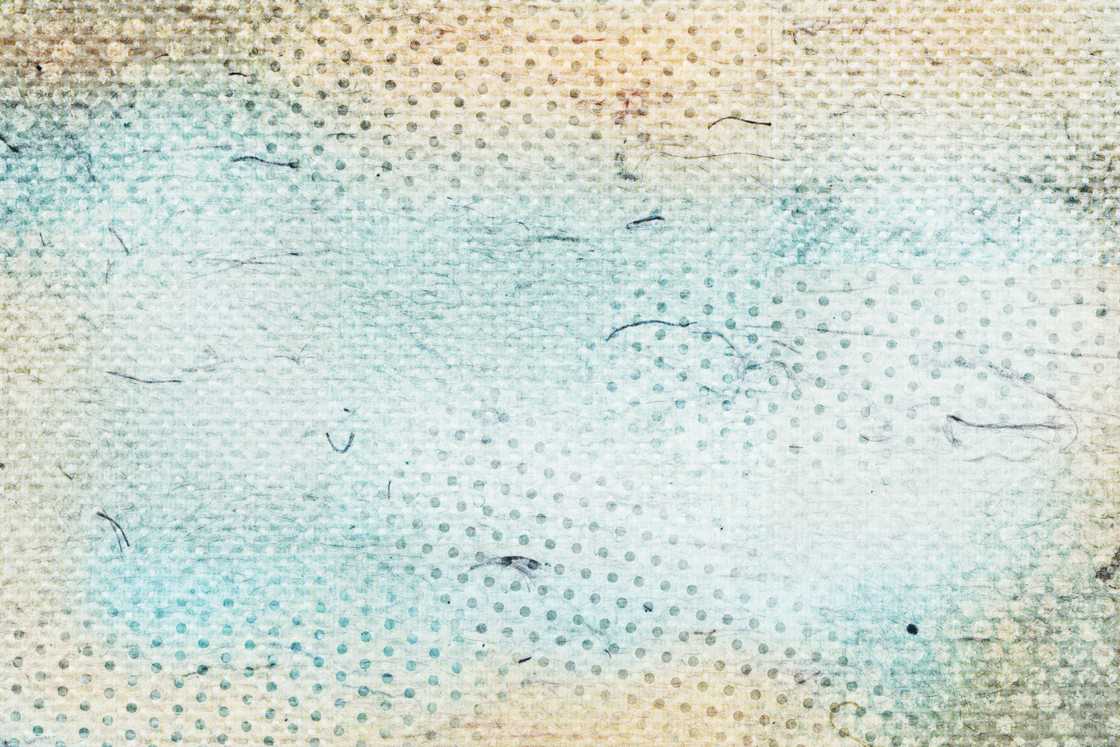
Source: Getty Images
It was an advertisement for a local, long-forgotten band called The Quezon Harmonists, a folk-rock group from the late seventies. It was amateurish, the ink slightly smeared. My eyes burned.
"When I was ten," I whispered, "my grandfather and I convinced Mang Ramon to let us put up that poster. It was for a charity event we were doing at the barangay hall. We stapled it in eight places and used a whole roll of masking tape because we didn't want it to fall. It was my first ever piece of ‘community work.’"
Althea's jaw dropped slightly. "No way. That is incredible. I always wondered why it was so firmly attached." She stood up, excitement bubbling in her voice. "Come on. I want to show you the real reason you smelled that scent when you walked in."

Source: Getty Images
She led me past the counter, through a swinging half-door marked "Staff Only," and into a small, windowless storage room. It was dark, a little damp, and it held no coffee supplies.
Instead, built into the far wall was a custom-made shelf unit, stained the same deep cherry wood as the support beam I'd noticed earlier. On it sat a beautiful, vintage turntable, its platter spinning slowly.
And stacked on the shelves, organized by genre, were perhaps three hundred vinyl LPs, a carefully curated, precious collection. The air was thick with the scent of aged cardboard and polyvinyl chloride, the unmistakable smell of Rhythm & Grooves.
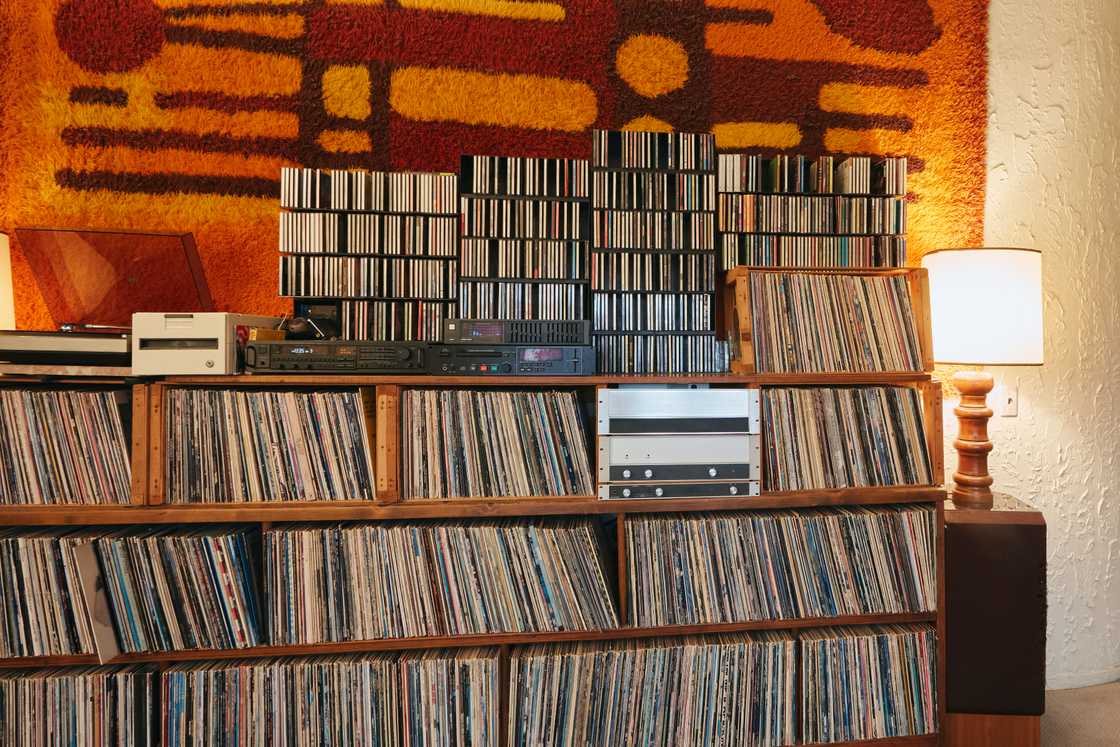
Source: Getty Images
"The previous owner left these in the back when he retired, and I couldn't bear to throw them away," Althea explained, running her hand along a stack of classic OPM records. "These are the last of the store's treasures. I play them every single day. I call this my 'Sacred Listening Room.'"

Read also
She Walked Out of Handover in Tears — He Called Her Back, Fixed the Remark, and Drew a Plan
I stood in the small room, utterly speechless, tears welling up in my eyes, tears that had been years overdue. The little storage room, the shop's true heart, felt like the purest place in the world.
It was a direct, unfiltered connection to the man who taught me everything about the difference between hearing and listening.
Althea didn’t rush me. She reached for a record from the Jazz section, a well-loved copy of Bayanihan Jazz Classics, and gently placed it on the turntable. The opening notes of a timeless piece filled the tiny space, its unmistakable, lopsided rhythm a melody I knew by heart.

Source: Getty Images
"Your grandfather would have loved this," she said, her voice soft.
"He did," I managed, wiping my eyes. "He owned a copy. He used to say it was the sound of a truly confident man—unconventional, but perfectly in control."
I spent another ten minutes in that room, just breathing in the scent, listening to the music, letting the sound wash away the noise of the last seven years. The rigid, analytical walls I had built around my heart, the ones that measured every moment by its efficiency and its cost, began to crumble.
When I finally stepped back out into the bright, warm coffee shop, I felt immeasurably lighter. The rain had stopped, and a sliver of weak sunlight streamed through the newly installed window.
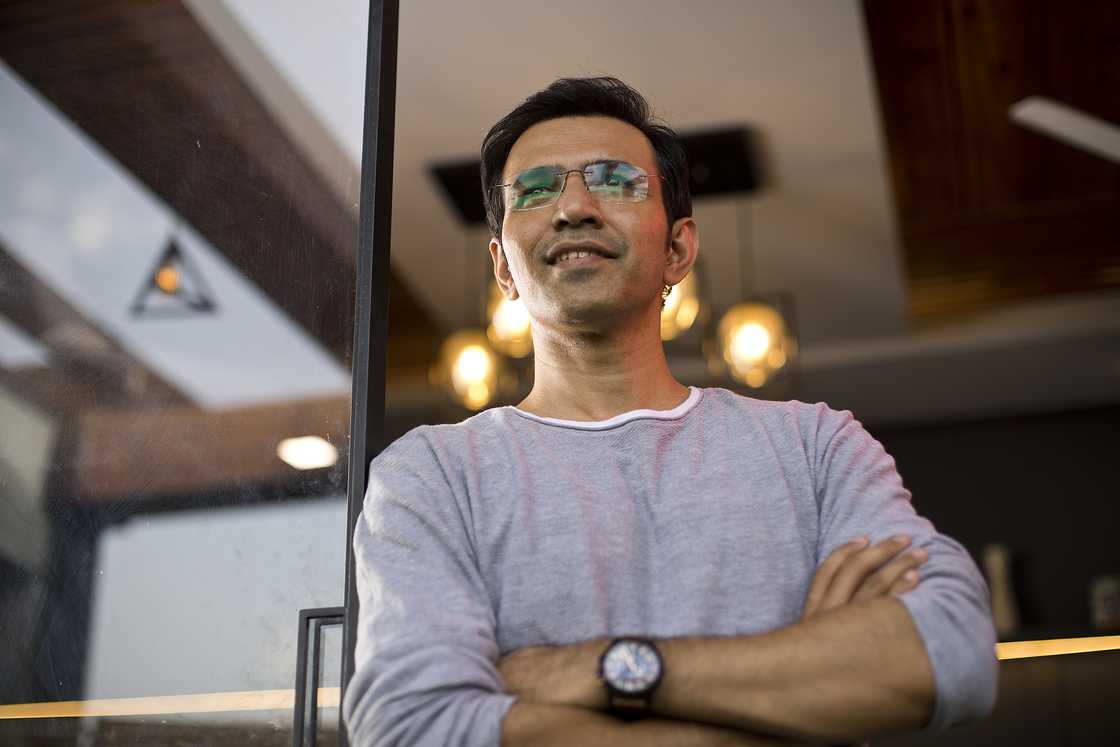
Source: Getty Images
I looked at Althea, who was polishing the kape kettle on the counter, a look of quiet satisfaction on her face. She hadn't tried to sell me anything or push a commercial agenda. She had shared a sacred space.
"You have no idea what you've done for me, Althea," I said, genuinely. "It's more than just the memory. It's permission to stop running."
She shrugged, a gesture of humility. "Just trying to keep the good things alive. It felt wrong to let that kind of history fade completely."
"It did," I agreed.
A new, firm resolve settled in my chest, a feeling utterly foreign to the aimlessness that had defined my last few months. I realized my sabbatical wasn't about running from a career; it was about finding a new one.

Source: Getty Images
"Althea," I said, walking to the counter. "I have a few more weeks to spend just decompressing. But after that, I think I know what I'm going to do with my life. I'm going to open a record store. A real one. Where people can actually listen."
She smiled, a wide, true smile that reached her eyes. "Good. We need that. The world needs things that spin slowly and require a little effort to appreciate. When you do, see me. I'll make you the best cup of coffee you've ever had, and we'll talk suppliers."
I left Kape’t Kultura not with a clear path forward, but with a clear purpose. The years of striving for the highest paycheck, the largest title, and the fastest promotion had left me empty. I had mistaken accumulation for fulfillment.
I had chased a soundtrack of success, only to discover it was a tinny, compressed file that offered no depth or resonance.
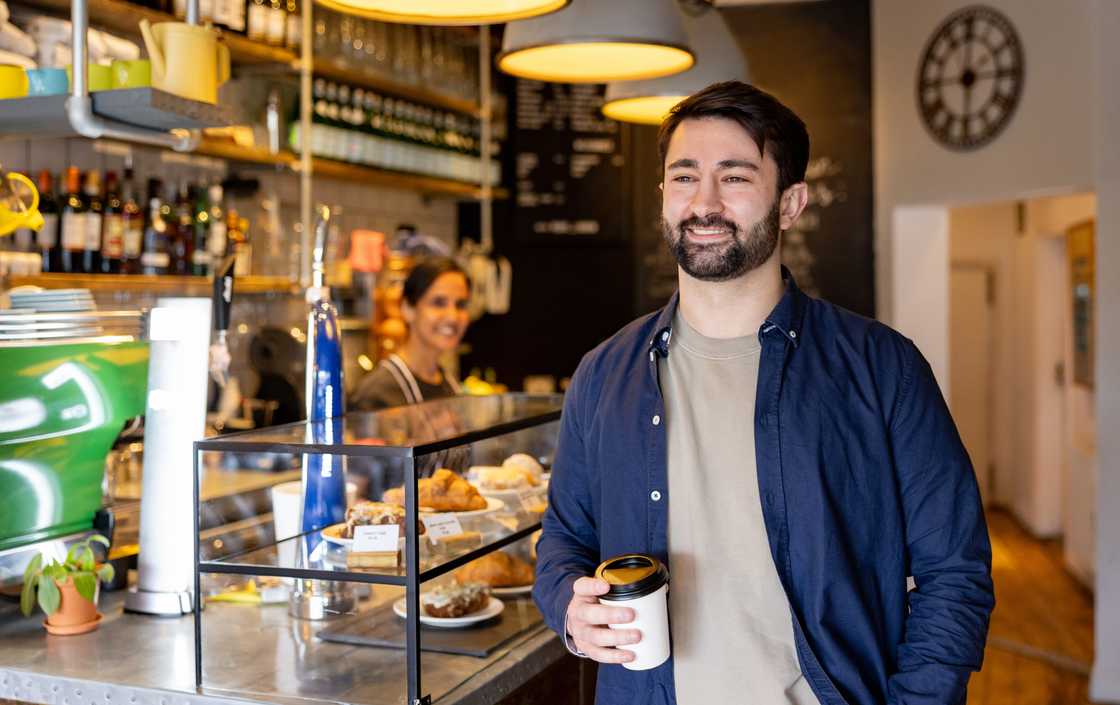
Source: Getty Images
The universe, in its own gentle, utterly random way, had used a rainy day and a coffee shop conversion to remind me what mattered.
It wasn't the big, sweeping, life-altering decisions that held the true meaning; it was the tiny, persistent details: the smell of old paper, a hand-drawn star, a deeply familiar melody played on the right equipment.
It was the culture, the rituals of care and appreciation that we share, that is worth preserving, not the quick, disposable consumption.
Althea hadn't saved the whole record store; she had saved the vibration of it. She kept the last few sacred records and played them as a continuous, ambient offering to the universe. In doing so, she became the guardian of an entire neighborhood's collective memory, and she accidentally rescued mine.
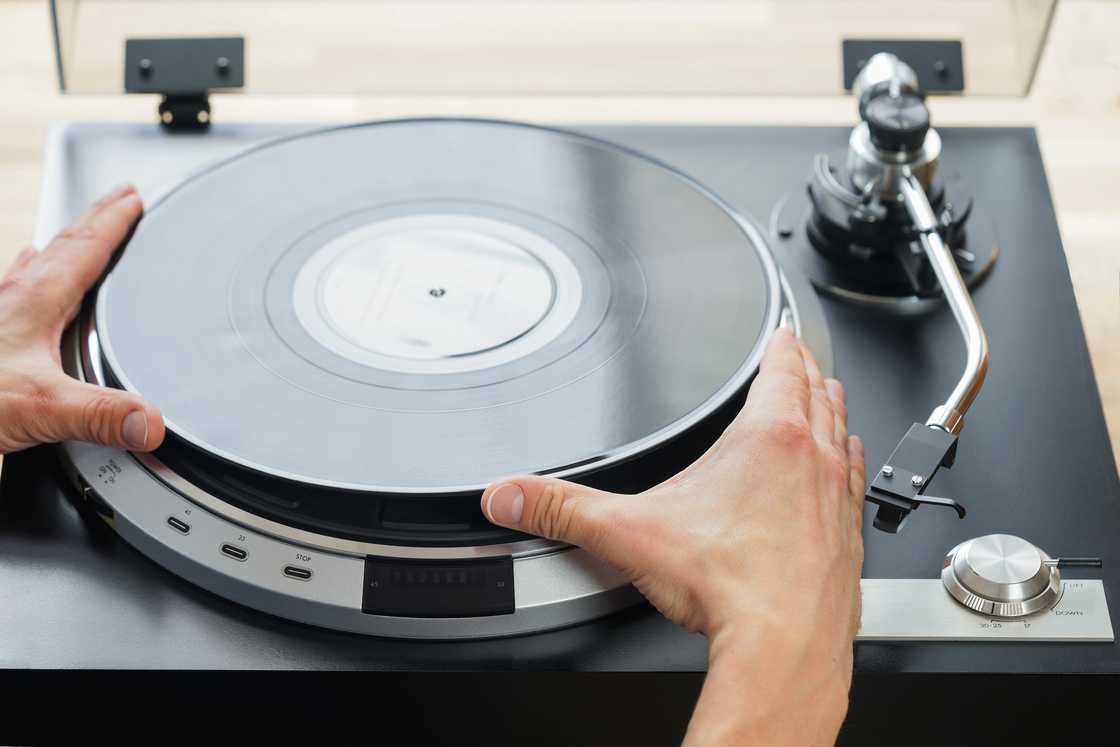
Source: Getty Images
The actual records of our lives are not the achievements we log on paper, but the sensory memories we etch into the world, the posters we put up with a grandparent, the scents we inhale, the music that truly moves us.
The clear lesson I took away was this: Don't let the noise of the next big thing drown out the quiet, perfect sound of what you truly loved.
I stood on the sidewalk, the last of the rainwater dripping from the awning. The sky was clearing, and the air was clean and fresh.
I asked myself: What are the last few sacred things in my life that I have stopped listening to?
This story is inspired by the real experiences of our readers. We believe that every story carries a lesson that can bring light to others. To protect everyone's privacy, our editors may change names, locations, and certain details while keeping the heart of the story true. Images are for illustration only. If you'd like to share your own experience, please contact us via email.
Bagong feature: Tingnan ang mga balitang para sa'yo ➡️ hanapin ang "Recommended for you" block at mag-enjoy!
Source: YEN.com.gh






